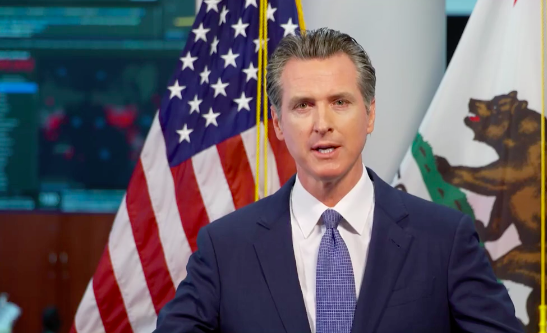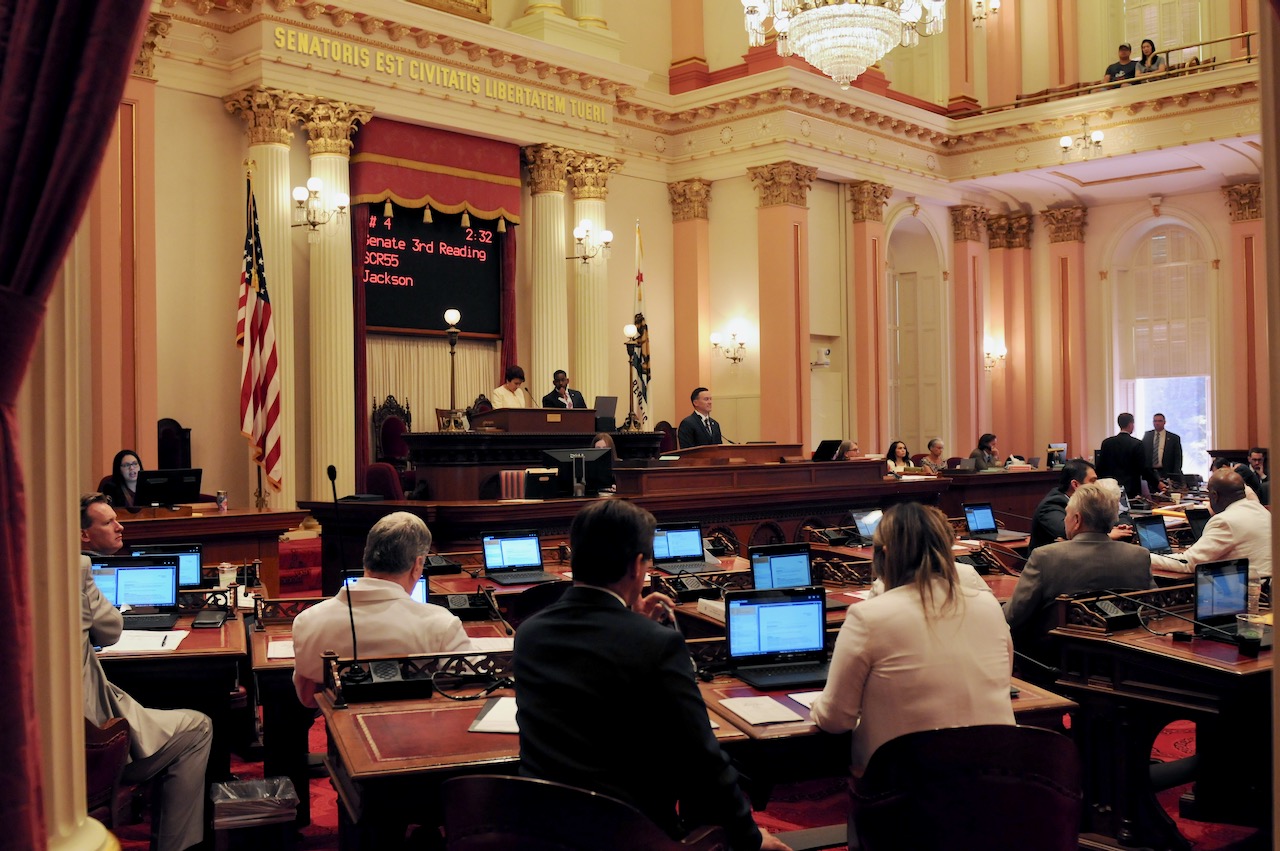
California Supreme Court. (Photo: courts.ca.gov)
From the Cheap Seats: The People are Not Sovereign
While the reasoning behind the Court’s opinion is transparent, elements within it warrant dispute or criticism
By Garvin Walsh, June 20, 2024 5:17 pm
It is a sad day.
In a unanimous opinion published June 20, 2024, the California Supreme Court has made clear that the people of this state are not sovereign but rather are subservient to the governing class. The revenue-raising powers of the state government are not to be subject to broad constraints instituted by voter initiative.
The Court rejected the already-qualified ballot initiative known as the Taxpayer Protection and Government Accountability Act (“TPA”). The Secretary of State has been ordered to not put the measure on the ballot. The opinion can be accessed via this link.
The most significant element of the TPA, intended to preserve taxpayer protections already enacted via initiative and to constrain the growth of the tax burden, would have required a majority of the electorate to approve tax increases or additional fees and charges.
The Court’s rejection of the measure relies on distinctions it has previously drawn between the meanings of the words “revise” and “amend”. It echoed an 1894 holding that “the provisions contained [in the Constitution] for its revision indicate the will of the people that the underlying principles upon which it rests, as well as the substantial entirety of the instrument, shall be of a like permanent and abiding nature. On the other hand, the significance of the term ‘amendment’ implies such an addition or change within the lines of the original instrument as will effect an improvement, or better carry out the purpose for which it was framed.”
The Court found that “[t]he TPA would shift so much authority, in such a significant manner, that it would substantially alter our framework of government…[accomplishing] such far reaching changes in the nature of our basic governmental plan as to amount to a revision” of the Constitution.
Some comfort may be found in the holding that “[w]hether any individual component of the TPA would constitute a revision standing alone is a question we do not answer here.” A narrow, targeted measure might enable the people to impose further limits on taxation analogous to those of Proposition 13.
The decision also rests on other grounds, including a purported shift of power between the legislative and executive branches, the notion that the proposed measure would impede critical government operations, constraints upon the legislature’s ability to delegate tasks to various agencies, and interference with the administrative process of local fee setting and collection.
While the reasoning behind the Court’s opinion is transparent, elements within it warrant dispute or criticism. The lack of a dissenting opinion is also troubling – does that reflect wisdom in the decision or the fact that the Court consists of uniformly liberal appointees? Six of the seven justices were appointed by our most recent Democrat governors, with one appointed by Governor Schwarzenegger.
It is clear from this decision that when it comes to revenue raising the people of California (the “electors”) are subordinate to the will of the legislature, not the other way around. While the Constitution asserts that “[a]ll political power is inherent in the people,” the present obstacles to the exercise of that power, underscored by this decision, render that statement an empty promise.
As a practical matter, the meaning of the Court’s rejection of the TPA is that the achievement of constraints on the legislature’s taxing power will require a two-thirds vote of both houses of the legislature to either 1) put a measure on the ballot for approval by the voters, or 2) hold a constitutional convention, the product of which would also require voter approval. Let that sink in: meaningful constraint on the taxing power of the legislature will require a supermajority of both the Senate and Assembly to voluntarily diminish their most precious political power. Don’t hold your breath.
As always, the only way for the people to exercise their sovereign power is at the ballot box, infrequent occasions involving campaigns which are costly to undertake and which are dependent upon the favor of both fierce partisans and low-information voters. Meanwhile, between elections, the legislative process continues behind the scenes, corrupted by the legislature’s self-serving impulse to tax and spend, by the financial support of rent-seekers and lobbyists, and by the lazy impulse to indulge ill-conceived and incompetent interventions concocted by the administrative state.
In California both houses of the legislature suffer with Democrat supermajorities, lately dominated by the progressive wing of the party, so the constructive give and take between parties which might yield better and fewer laws does not occur. The characteristic impulse of the left to expand the power and influence of the government continues unabated. There is only one way to overcome this cancerous condition: throw the bums out. Deprive the Democrats of their supermajorities by electing enough Republican legislators for the GOP to become a partner in the legislative process.
- Fool’s Gold? - February 26, 2026
- From the Cheap Seats: Prop 50 is an Indecent Proposal - October 15, 2025
- Political Motives Suspected in Firebombing of Oceanside Home/Cars - July 16, 2025





A sad day indeed!
Yet, revealing!
There is a definite proliferation of kangaroo courts in Democrat super majority states like California and New York. Throw the bums out indeed.
It is a mystery to me how the voters keep electing democrats who do not serve the people. Is it ignorance or brainwashing? I don’t know if there is any hope for California
Quite a bit of both actually. Most voters in this state are conditioned to only vote for the person with the (D) next to their name (even if that person is literally dead) and they also have no idea what these people are up to until years later when they wonder why they can’t buy a gas-powered generator at Costco anymore or why their kids have become gender-benders at school without them even knowing.
Not surprising, given the communistic agenda trajectory this state has been on for the past couple of decades. The people are beholden to the communists running/ruining commiefornia (formerly known as California). The electorate is not smart enough to see that we’re all in the proverbial pot with the water still comfortable enough so that most don’t see they’re on their way to being boiled.
The same people who don’t want you to vote on tax increases also don’t want your vote to count at all.
With creeping tyranny the balance of powers is the first thing to go.
Like I’ve been saying for some time, California is a Democracy but is supposed to be a Republic, our Flag says so, and there is a difference. This pretty much sews it up too if it holds. We have an election coming up, care to make any changes?